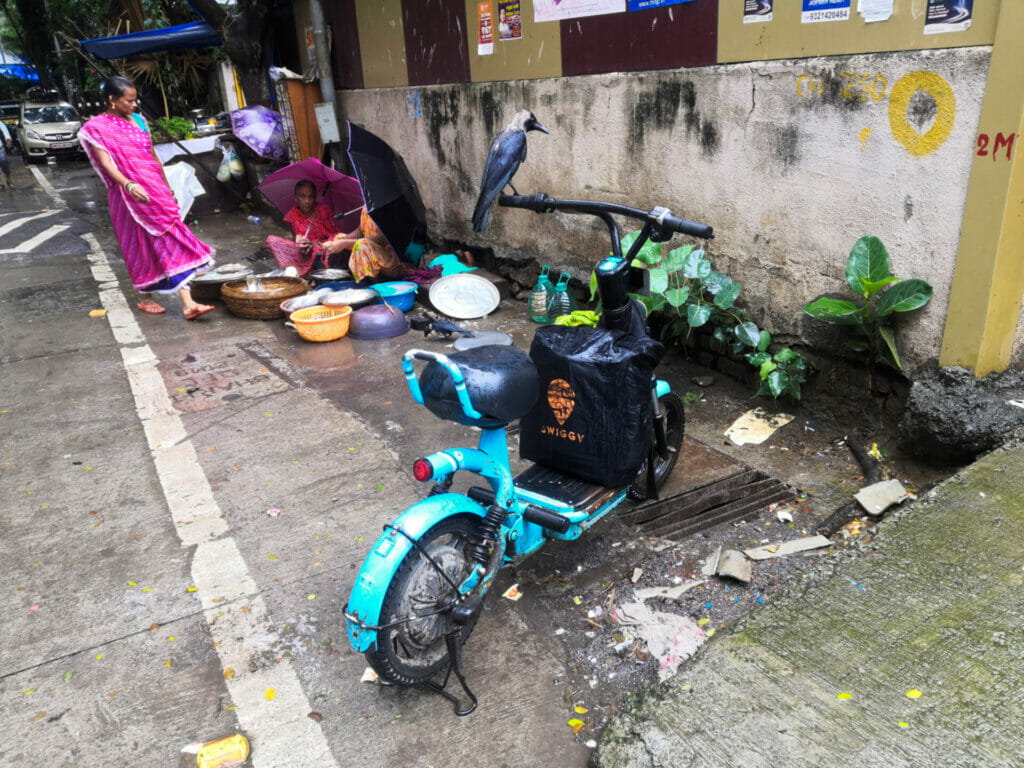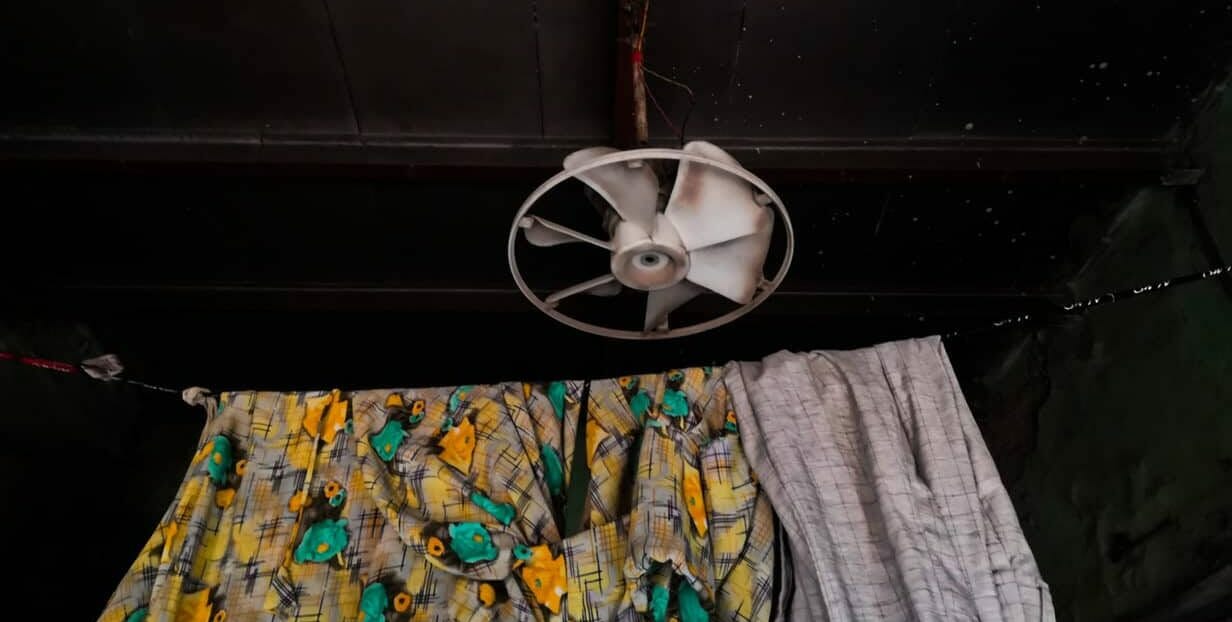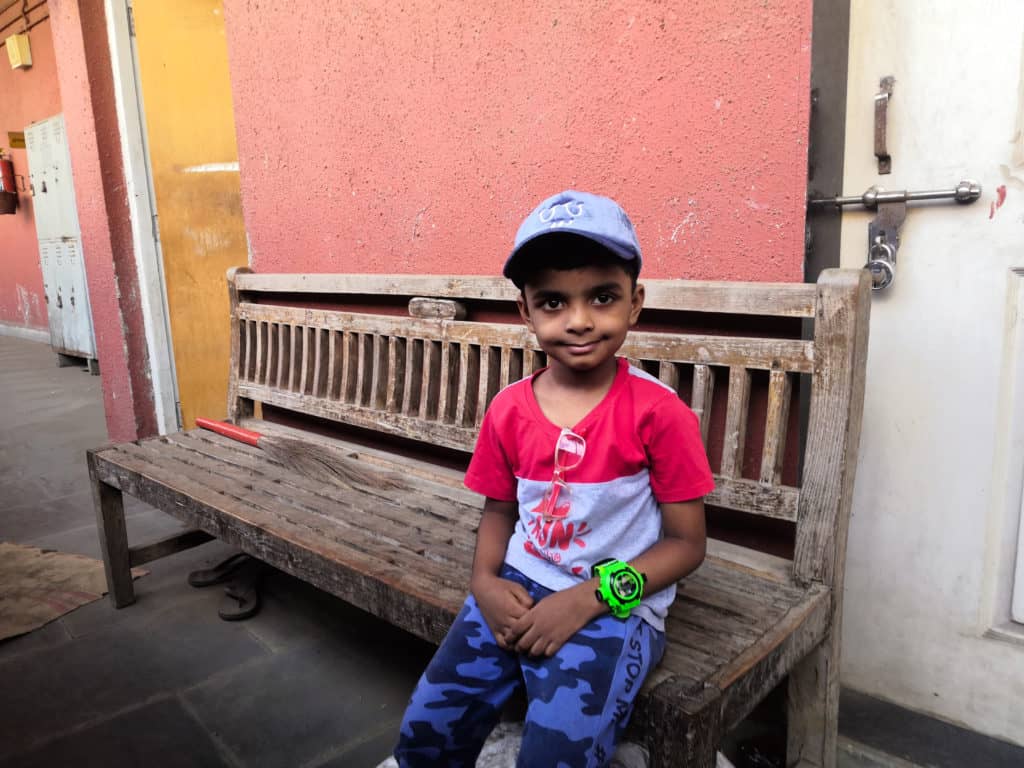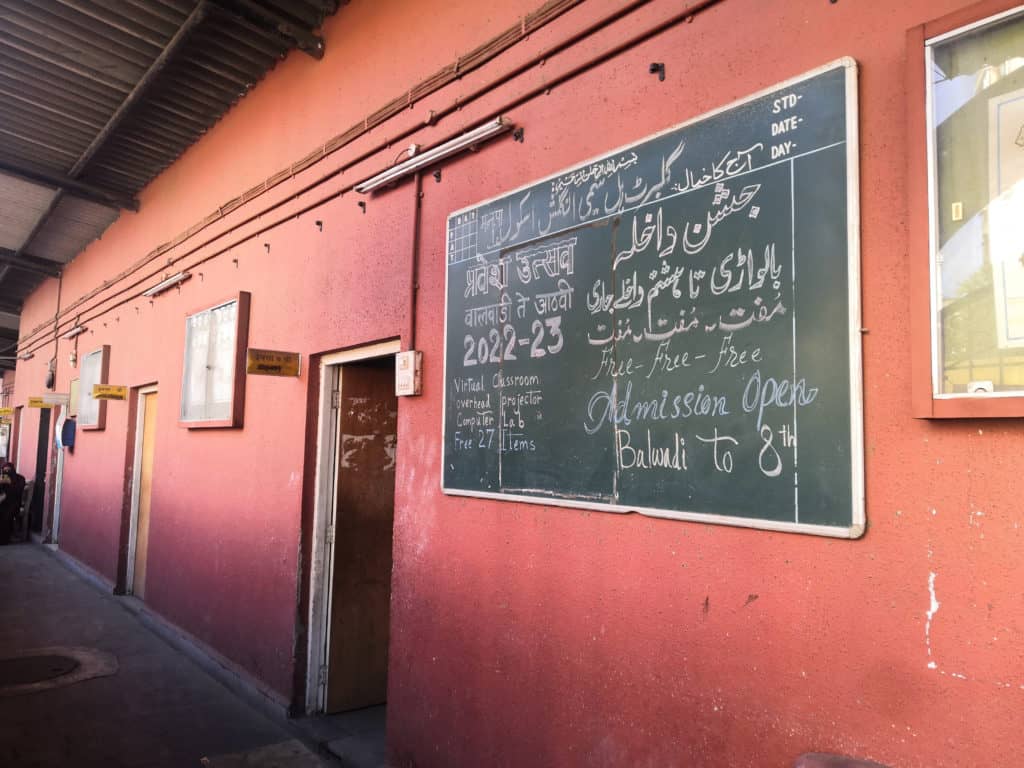Towards the beginning of the year, I looked at the public bike-sharing systems in Mumbai through the electric Yulu bike. A cross between a scooter and a moped, it wasn’t long since it had been introduced in Bandra West as a transport option for delivery workers of Swiggy, Zomato, Dunzo, etc.
Because I don’t live in Bandra, I was witnessing the development in flashes. On one visit to the area I caught the blue bike as a blur hurtling past Carter road, on the next, I saw multiple around Hill Road. The bikes had certainly caught on in the area.
Thinking of doing a simple follow-up and pulse check, I got into the habit of snapping a photograph every time I came across one of the bikes (as mobile vehicles, that wasn’t always possible). I held up a few drivers, asking them basic questions about their rides and pay. The delivery workers were earning more, with greater comfort.
But it wasn’t until I went to the Yulu Max battery swapping station on Pali Hill that I saw the story I was onto. The biggest hurdle in electric vehicle adoption was plaguing the Yulu bikes too.
Such growing pains are to be expected, perhaps. But the article left me with an insight: there’s a big market for improving working conditions, even for unskilled workers. Multiple workers told me they were willing to pay more for the bikes – that they were renting weekly – if that meant a fix to the battery problem.

Read more: How the electric Yulu bike is faring in Bandra West
At the risk of sounding like a litany of complaints against the weather, in the middle of summer, I worked on an article on the heat in the M/East ward. Infamous for being the poorest, most polluted, least literate, most fatal, least developed, and lately, the site of the measles outbreak.
It’s a piece dear to my heart, precisely because it gives voice to the legitimate complaints of people against an uncontrollable phenomenon such as the weather.
Residents here were dealing with the unforgiving heat in both commonplace and ingenious ways; from multiple baths to sprinkling water on floors to cool it just before sleeping, and a jugaad ceiling fan made with parts of a washing machine and an AC.

In a chance turn of events, Ambily Adithyan, the zero-waste cities program lead at the Global Alliance for Incinerator Alternatives (GAIA), picked up the lead on local curiosity. She corroborated the super-cooling effect of the makeshift fan, finding that it raised household electricity costs by Rs 500. It also led her to explore thermocol lining on roofs, a cooling option I missed. (I also failed to mention red clay-tiled roofs, kabelu, another cooler alternative not popular anymore.)
Writing this with Mumbai in temperatures over 30 degrees Celsius in winter makes it clearer that this is human-led climate change. Those who contribute to it least, suffer the most.
Read more: For the residents of M-East ward, urban heat is just another thing to endure

An article I only just managed to do took place entirely at Gilbert Hill MNP Urdu School in Andheri – the acting verification centre for admissions reserved under the Right to Education (RTE) Act. I had followed a chain of leads to find out the location, landing there in the last hours of the last day for verification for that batch. Three mothers were waiting at the near-end of a very lengthy application process. After initially talking to them, I waited with them.
The article was accompanied a previous article I’d done on the reservations – 25% in private schools – under RTE. According to an RTI response, many parents were applying for the seats on offer, but only a handful made it to the finish line. What’s worse, some seats stayed vacant.
The follow-up article put a face to the parents on the brink of losing their chance of admission in a private school. Their stories had a happy end; the parents’ representative who finally arrived, Aslam Shaikh, was helpful and promised the mothers those precious seats.
Read more: Inside a verification centre on the last day for Right to Education (RTE) admissions

I still have questions about the admissions pipeline to the seats reserved under RTE: where does the biggest sink of applications occur, is there a pattern to the seats that stay unfilled, do schools routinely reject applications, and if so, how, why do so few older students apply for the reservations, and how long do students stay put in the schools they’ve been promised a free ride in till the eighth grade?
The next step is to go to the schools. I’ll be doing that in the coming year.